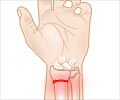Body languages of a gold medalist and that of a non-finalist are inborn and not acquired, says a study of data gathered at the 2004 Olympic and Paralympic games.
Jessica Tracy, a psychology researcher at the University of British Columbia, studied how pride and shame are expressed across cultures, and among the congenitally blind.She compared the non-verbal expressions and body language of sighted, blind, and congenitally blind judo competitors representing more than 30 countries.
She observed that the individuals displayed pride and shame behaviours in response to the same success and failure situations.
"Since congenitally blind individuals could not have learned pride and shame behaviours from watching others, these displays of victory or defeat are likely to be an innate biological propensity in humans, rather than learned behaviour," says Tracy.
For their study, Tracy and her colleagues used photos taken by an official International Judo Federation photographer, who was unaware of the specific research goals.
The photographer had shot the athletes during and immediately after each match, repeatedly for approximately 15 seconds, allowing for a series of moment-by moment images of each behavioural response.
Advertisement
The expressions of defeat, on the other hand, included slumped shoulders and a narrowed chest.
Advertisement
However, congenitally blind athletes across cultures showed the shame response, suggesting that the cultural difference found among sighted athletes was due to the Western cultural norm of hiding one’s shame.
"These findings support evolutionary accounts that pride and shame would have been powerful mechanisms in enhancing or inhibiting an individual’s social status," says Tracy.
A research article on the study has been published in the online edition of the journal Proceedings of the National Academy of Sciences.
Source-ANI
JAY/L











